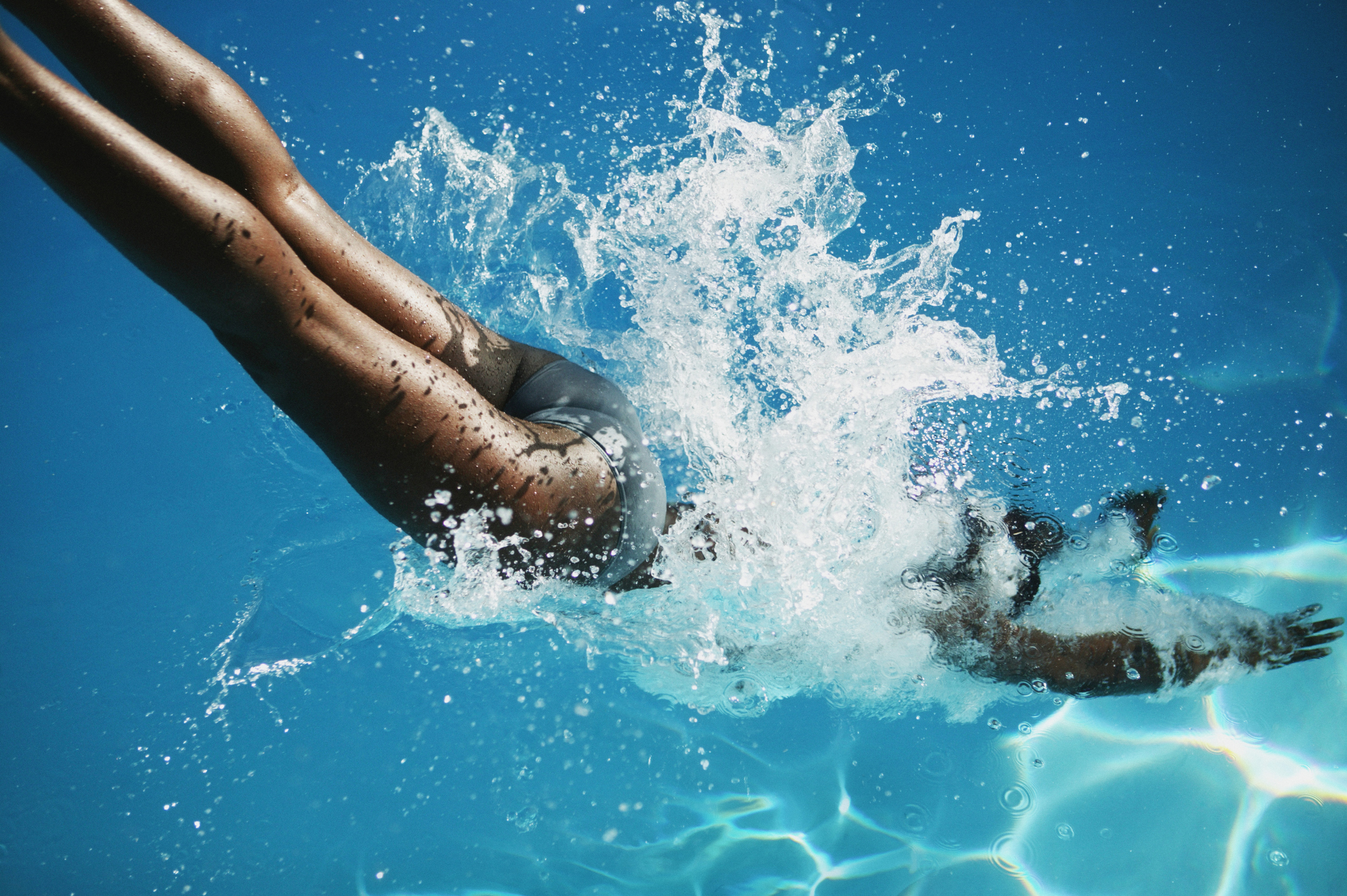 As the coronavirus COVID-19 continues to spread and sicken people, some states and countries are starting to reopen businesses and lift stay-at-home requirements. With that coupled with the weather getting warmer, people are thinking about engaging in many warm-weather activities like outdoor sports, swimming in pools, and going to outdoor water parks.
As the coronavirus COVID-19 continues to spread and sicken people, some states and countries are starting to reopen businesses and lift stay-at-home requirements. With that coupled with the weather getting warmer, people are thinking about engaging in many warm-weather activities like outdoor sports, swimming in pools, and going to outdoor water parks.
So we ask the question: is it safe to swim in pools or lakes? Does the virus spread through the water?
Some experts say water shouldn't be a cause for concern. The CDC says there is no evidence the virus that causes COVID-19 can be spread to people through the water in pools, hot tubs, spas or water play areas.
"I don't believe that bodies of water — swimming pools, lakes or ponds or the ocean — are major ways that people can contract this virus," says Dr. Amesh Adalja, a senior scholar at the Johns Hopkins University Center for Health Security. "Remember, it's a respiratory virus that spreads through coughs and sneezes and common-touch surfaces. So obviously, if you're at a pool and people are sick and touching common-touch surfaces — maybe the chairs or the tables — that can be a risk. But the water itself: No."
Also, according to the CDC there is no evidence that COVID-19 can be spread to humans through the use of pools and hot tubs.
The COVID-19 virus has not been detected in drinking water, the CDC adds. “Conventional water treatment methods that use filtration and disinfection, such as those in most municipal drinking water systems, should remove or inactivate the virus that causes COVID-19,” the CDC says.

But the bigger concern is in contact with other people while swimming. When you go to the bathroom or concession stand. When you sit in a lounging chair by the pool. When you greet someone...all of these things you have to keep in mind.
Most community pool staff does not sanitize tables, chairs, and lounges with bleach after each use, so you want to be mindful of that when visiting.
Another question we've been getting is: Does chlorine kill germs in the pool?
Chlorine is added to the water to kill germs. But it does not work right away. If used properly, free chlorine (the more active form of chlorine that kills germs) can kill most germs within a few minutes. CDC recommends pH 7.2–7.8 and a free chlorine concentration of at least 1 ppm in pools and at least 3 ppm in hot tubs/spas.
If using cyanuric acid, a chlorine stabilizer, or chlorine products with cyanuric acid (for example, products commonly known as dichlor or trichlor [see product label]), CDC recommends... pH 7.2–7.8 and a free available chlorine concentration of at least 2 ppm in pools. CDC recommends not using cyanuric acid or chlorine products with cyanuric acid in hot tubs/spas.
But Coronavirus isn't the only thing swimming in local community pools should be worried about.
Local and private pool outbreaks of diarrhea-causing cryptosporidium have increased 13% each year. There were 7,465 cases of crypto infection reported from 2009 through 2017, with an even larger number being reported in 2019.
The number of outbreaks reached 444 by June 2019, according to the CDC.
The CDC says another 493 outbreaks of some kind of bacteria, parasite, or chemical between 2000 and 2014 were associated with recreational facilities, including pools, hot tubs, and playgrounds, and caused 27,219 cases and eight deaths.
Most of those deaths were caused by bacteria or other pathogens, and 6% by chemicals.
Of the outbreaks caused by bacteria and viruses, 58% were caused by cryptosporidium, which causes diarrhea that can last for up to 3 weeks.
Thirteen percent were from pseudomonas, which causes hot tub rash and swimmer’s ear. Another 16% came from legionella, which causes Legionnaire’s disease and a milder illness with flu-like symptoms known as Pontiac fever.








